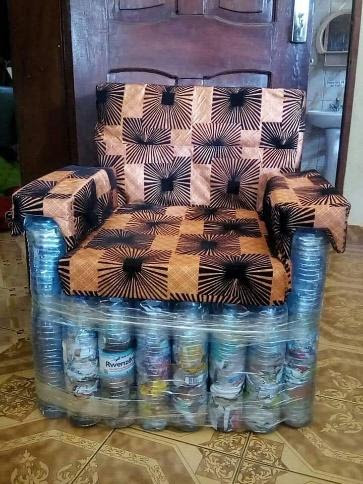SAFCEI hosts online eco-footprinting workshop series
- Published:
SAFCEI held an online eco-footprinting workshop series during July and August 2021 on the topics of energy, water, and waste. What was initially planned to be a one-day eco-footprinting webinar, turned out to be a four-week series of sharing knowledge and action, from sustainability auditor Kim Kryshaar and faith leaders in Southern Africa.
The Eco-footprinting Workshop series has generated a lot of interest in how to use appropriate technology to be energy and water efficient and reduce waste.
Although there had been challenges with networks in certain countries the presentations were no less inspiring. We had between 60 -190 participants each week from all over Southern Africa (Malawi, Uganda, Zimbabwe, Kenya and South Africa).
Week 1: Energy
Sheik Qassim Chikwakwa, Director of Al-An'bja Foundation in Malawi presented on the topic of Energy and told us that he has developed a process to make cooking briquettes from paper, and cardboard and now bamboo that they are growing to provide fuel. This links not just to energy but to addressing deforestation, which is linked to biodiversity protection and resilience to climate change impacts - so very much an Earthkeeping action.
Rev. Emmanuel Magambo, an ordained Pastor from the Pentecostal Assemblies of God in Uganda said that we have to implement small initiatives with big impact and possible quick outcomes. Fuel-efficient stoves, wireless cookers (Wonderbags), briquettes, and biogas digester stoves were discussed.
Week 2: Water
Sebia Kwaramba from The Methodist Church in Southern Africa in Zimbabwe spoke about rainwater harvesting.
“Use water more than once and the final use should be the garden,”. says Kwaramba.
Rev. Andrew Gwambe from Total Life Care Ministries in Malawi spoke about water-efficient appliances such as low-flow showerheads.
Water-saving tips from a workshop participant, Elisha Chizimbi, are to turn off the water while brushing your teeth and while shaving. “When washing dishes by hand, we don't leave the water running for rinsing,” says Chizimbi.


Week 3: Waste
“There is no such thing as waste – it is simply material that you have not yet figured out how to use. We need to start to recognise the abundance in what we throw away,” says Celeste Esau from the Unitarian Church in Cape Town.
Ugandan workshop participants Philip Bakalikwira from Africa Partnership on Climate Change Coalition and Hajjat Aphwa from the Muslim Community shared some beautiful pictures of innovative projects from an organisation called Kinawataka Women Initiatives, which uses plastic to create practical products such as bags and furniture.
Lydia Petersen, a faith leader from Cape Town shared information about her Biogas digester that she has been working on, which is a cross-cutting project between energy, water, and waste. We look forward to seeing the final product!


Follow-up session:
This session was to explore what faith leaders in Southern Africa were doing on the three themes we have covered over the three weeks. Kim Kruyshaar gave a summary overview of our Energy, Water and Waste Footprints with examples of how to reduce our impacts. Faith leaders from Zimbabwe, Malawi and South Africa made inspiring presentations on their work within their own communities.
By Zainab Adams, FLEAT Coordinator.
Who we are

SAFCEI (Southern African Faith Communities’ Environment Institute) is a multi-faith organisation committed to supporting faith leaders and their communities in Southern Africa to increase awareness, understanding and action on eco-justice, sustainable living and climate change.
Featured Articles
-

South Africa: Who Ends Up Paying If DMRE Cooks the Price of Nuclear Power?
-

South Africa’s nuclear energy expansion plans continue to draw criticism, environmental NGOs chew over legal challenge
-

Earthlife Africa and SAFCEI respond to latest unsettling nuclear news regarding the ministerial determination
-

Open Wing Alliance Africa (Virtual) Summit 2023
-

The Green Connection and SAFCEI respond to energy minister's divisive and deflecting comments
-

Job Vacancy: FLEAT Coordinator









